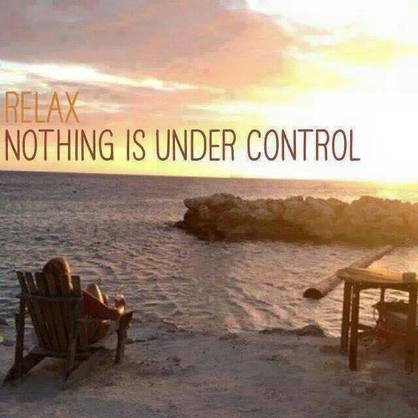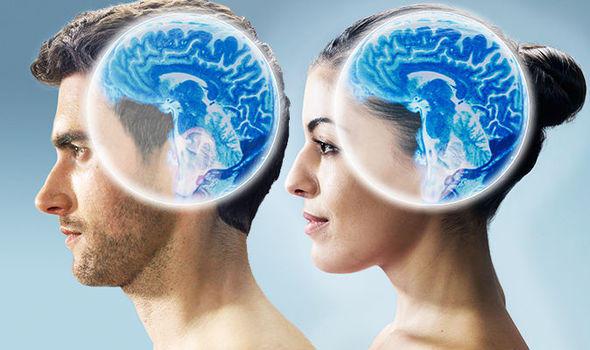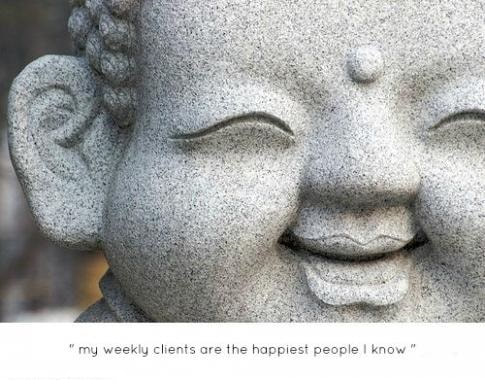|
zen habits:
By Leo Babauta Many people I know are on a quest to optimize their lives — some of my favorite people in the world will spend days trying to perfect a productivity system, get things automated, or find the perfect software for anything they’re doing. They are on a continual search for the perfect diet, the perfect work routine, the perfect travel setup. Optimizing can take quite a bit of time and energy. What would happen if we let go of optimizing? Who would we be without the idea that we should optimize everything? One idea is that if we decided not to optimize everything, we’d stop caring, stop trying to make things better, and live sub optimal lives. But I know myself pretty well — I will always care, even if I am not trying to optimize. I will always do my best, which is different than optimizing — it’s taking care and giving love, even if things aren’t optimized. I believe most of you are this way, pouring your hearts into something with pure love, without needing to make everything perfect. So why shouldn’t we optimize? And what would it be like if we didn’t? Give me a few moments to make the case against optimizing, and present an alternative way. The Case Against Optimizing I don’t think people who optimize are idiots (many of the smartest people do it), nor is it a life-ruining thing to try to optimize. I’ve done it many times. But consider:
And do it with a smile and joy in your heart. What a life we have been gifted with!
1 Comment
A Tale of 2 Monks.......
Two monks were walking along a river when they came upon a crossing point. At the crossing was a woman in tears. She told them that she was afraid of the water and could not cross. Without a word, or hesitation, the older monk proceeded to carry the woman on his shoulder, crossed the river and let her down on the other side. The two monks resumed their path while the woman went her own way. When they returned, the younger monk, obviously agitated, continued shaking his head and muttering under his breath. After a moment the older monk finally asked him what was wrong. The younger monk said, "Brother, we are prohibited from any contact with women, yet you carried that woman across the river on your back. You let her crawl onto you and you held her! " The older monk gave a slight smile and said to his younger companion: "Brother, I left her 2 miles back at the crossing. Yet, you still appear to be carrying her" This is a very well known Zen parable about letting go. But there are so many things to take away from this simple story. What do you see in that relates to your life and your observations of friends, family. What’s the secret to feeling calm, focused, and at peace?
Perhaps monks provide a clue. Buddhist monks appear to be peaceful and present all the time. How do they do it? I will tell you. For thousands of years, Buddhist philosophy has focused on how to reduce human suffering and keep the mind in the present moment. Some of the basic principles are true for us and we can adopt them into our modern life. Adopting some or all of these habits, or trying to part of the time (it's a work in progress) may help keep you present, find more peace, reduce stress and even lead to more happiness in your daily life. Habit 1 – Stop Chasing "Things" Did you know that the Buddha was born a prince? Yes, he could have spent his life in a big, beautiful palace where everything is done for him. But he didn’t. He abandoned everything when he realized the empty nature of materialism. 2300 years later, Buddhist monks continue to do the same. They keep material possessions to a minimum and only hold what they need to live their life. Usually this will all fit in a small backpack. They completely declutter their life. This is called Minimalism. Habit 2 – Do for Others In many Buddhist circles, monks learn to do things not for themselves, but for the whole world. Happiness is one of the most elusive words to define, yet it is very easy to comprehend. Much has been written about the pursuit of Happiness and what makes people truly happy, and one theme that really seems to apply is "doing for others" Material things do not make you happy. In fact they do the opposite. Every time you acquire something, it pushes the goal a little bit further, so is something you can never attain! This endless pursuit actuality insures long term chronic unhappiness (although there are VERY short bursts of happiness at the moment of acquisition, which usually fade very quickly...leading to to feel how? (post your responses please) When you can develop a kind of selfless attitude and MAKE time to do something for others, it offers a tremendous sense of satisfaction and well being. The less you focus on you and your personal problems, you get less emotional about small things and your mind becomes more calm. This is called inner decluttering: making room for others and dumping selfish habits. Habit 3 – Meditate One of the main reasons you become a monk is to have more time to meditate. Most monks wake up early and meditate for 1 to 3 hours and do the same at night. This kind of practice changes the brain. If you’ve read any articles on the benefits of meditation, then you know what I mean. You don’t have to adopt this kind of rigorous schedule, but what if you worked into your day 15 to 30 minutes of meditation? And one of the BEST things I have read about meditating, and also the most frustrating for beginners is this - Do not worry about emptying your mind. You can't its impossible, or nearly impossible without mountains of practice. Instead, let the thoughts enter, and give them space to exit. They come they go. Just try not to hold them or obsess. Allowing space for your thoughts to come and go IS meditating. So forget what you read about emptying your mind. That is only sort of right and impossible for most to achieve. Habit 4 – Following the wise In western modern society, we have an unhealthy relationship with old age. Everything is youth centric. But for Buddhist monks, and in fact many cultures see elder people as having wisdom. They seek elder spiritual guides that can help them on their path. If you look around, there are always insightful people to learn from. Older people have more experience which means they can offer countless life lessons. Some of best insights on life can be obtained from interviews with people on on near death, when asked what they regret. Read those! Make changes now. We only get one go-around. Habit 5 – Listen. Without judgment. See the 2 periods? These are actually 2 different concepts, sort of. Our brains naturally judge others. You don't have to look any further than social media to see how rampant and out of control this is. But according to Buddhists, the point of communication is to help others and ourselves suffer less. Criticizing and judging doesn’t help. This ties into Habit 2. Don't make yourself feel better by putting someone down. Make yourself feel better by lifting someone. Try it. Listening is an ART. So many of us don't listen at all. We are busy pre-planning our answers while we’re listening ! So try to make the main goal to simply take in all that they are saying. (how often do you do this??) It leads to more mutual respect, understanding and chances for progress in the conversation. Habit 6 – Change is the only law of the universe According to Buddhist master Suzuki, a crucial principle we all need to learn is to accept change: “Without accepting the fact that everything changes, we cannot find perfect composure. But unfortunately, although it is true, it is difficult for us to accept it. Because we cannot accept the truth of transiency, we suffer.” Everything changes, it’s the fundamental law of the universe. Yet, we find it hard to accept it. We identify strongly with our fixed appearance, with our body and our personality. And when it changes, we suffer. However, Suzuki says we can overcome this by recognizing that the contents of our minds are in perpetual flux. Everything about consciousness comes and goes. Worry exists only in the mind, as a complex orchestration or random neurons firing in specific patterns. Consciousness and reality are really ONLY in your mind and they are in constant change. Realizing this in the heat of the moment can diffuse fear, anxiety, anger, grasping, despair. For example, it’s hard to stay angry when you see anger for what it is. This is the essence of Zen. That the moment is all that exists. Habit 7 – Living "The Moment" As humans it can be tough to simply embrace the present moment. We are able to contemplate the past, and think about the future. Think about it - what is worrying? It is paying the price of the present moment for something that exists only in your brain! When you worry, your brain is wrapped around something that hasn't happened, and may never happen. If it does, deal with it as it is unfolding. But mindfulness encourages us to return to the present. Practicing mindfulness enables us to get better at redirecting our thoughts back to what we’re actually engaged in. It takes practice. It takes a willingness to want to improve. Start by reading and practicing these basic habits and notice the change. Aloha It’s all in your head - seriously
Ever try to walk, drive, or multitask right after having a great massage? Most people find tasks that require body/mind coordination difficult in the period that follows a massage. In addition to being relaxed, most people report feeling a “high” or slight euphoric feeling. A massage high.– an extreme sense of well being, relaxation, and pleasure is very often the result of having a good or great massage experience. So why does massage feel so darn good? What is it about the physical action of touch in massage that triggers these feel good messages in the brain ? The secret lies in the brain. Douglas Nelson, a neuromuscular therapist and founder of Precision Neuromuscular Therapy Seminars says this about the science behind the mind/massage/body connection: “For many decades, the prevailing wisdom was that emotions are experienced in the mind and, as a result, those powerful emotions then affect our body. For example, when someone offends us, we have the emotional experience of anger. Shortly thereafter, we experience physical symptoms of anger, such as increased muscle tension, constricted breathing, and an increased heart rate. On the other hand, powerful positive emotions like joy and happiness also have corresponding physical effects. Our emotions and thoughts have physical consequences. As it turns out, however, the new scientific understanding reveals that these mind-body experiences are at least bi-directional, if not completely the other way around. The emerging science is providing some really good evidence that the physical sensation can lead to the emotion, instead of only the emotion manifesting as a physical experience. Your mind is always trying to make sense of what the body experiences. The brain needs a reason for what it experiences; we interpret meaning so we know how to respond appropriately. As an example, let’s imagine you have an increased respiration and pulse rate. Are you excited or are you fearful? When you think about it, the physical experiences of excitement and fear are almost identical. The mind must decide which emotion it is based on the context of the experience. The experience of physical ease is then interpreted by the brain as being a sign of emotional ease. Relaxation of the body is also relaxation of the mind, as evidenced by the fact that the same class of drugs (benzodiazepines) given as muscle relaxants is also used in the treatment of anxiety disorders. Furthermore, when you return to work with that emotional framework, it changes what you notice around you as well. Little annoyances don’t seem as disturbing. Since attention is selective, your peaceful and positive emotional state predisposes you to notice lots of little blessings that you previously might have overlooked. This process becomes very self-reinforcing.” The brain/body connection In addition to the brain synthesizing experience into physical reactions (and visa-versa), the brain also releases hormones that create physical responses to both stress and relaxation. According to the MAYO clinic, “When you encounter a perceived threat — a large dog barks at you during your morning walk, for instance — your hypothalamus, a tiny region at the base of your brain, sets off an alarm system in your body. Through a combination of nerve and hormonal signals, this system prompts your adrenal glands, located atop your kidneys, to release a surge of hormones, including adrenaline and cortisol. This complex natural alarm system also communicates with regions of your brain that control mood, motivation and fear.” Conversely, studies have shown that relaxing situations and activities such as massage stimulate the “feel good” hormones of Oxytocin, while reducing the “stress enhancing” hormone adrenocorticotropin, promoting a feeling of well being, relaxation and pleasure. Why Interrupting stress hormone cycles is important According to MAYO clinic, interrupting the body’s stress responses could save your life. The body’s stress-response system is usually self-limiting. Once a perceived threat has passed, hormone levels return to normal. As adrenaline and cortisol levels drop, your heart rate and blood pressure return to baseline levels, and other systems resume their regular activities. But when stressors are always present and you constantly feel under attack, that fight-or-flight reaction stays turned on. And everyday stressors include commute driving, work related stress, bad diet and lack of exercise. It is a paradox of modern living that the "fight or flight" stresses of daily life like being eaten by a tiger are gone, yet we are living more stressed than ever due to the abundance of modern replacements of stress triggers, mail, bills, cell phones, email, over scheduling, etc. Not only are there more stressors, but they are now more often "always on" and were not designed to be! . The long-term activation of the stress-response system — and the subsequent overexposure to cortisol and other stress hormones — can disrupt almost all your body’s processes. This puts you at increased risk of numerous health problems, including:
You feel great leaving your massage therapists studio. You want to keep this feeling for as long as possible, realizing the stresses of life will creep back in soon. How can you reap the most benefit from your massage sessions? Practice these “self care” and the benefits of your last massage will last a little longer: Don't get right back on your phone Some of my first time clients, after having the most wonderful massage experience jump off the table and get right back on their phones. I try, nicely, to discourage that activity because it starts to immediately undo the positive effects of the massage. Take time to absorb the experience, notice how you feel, turn on some music, let it soak in....then gradually return to your routine. Mindfulness - be in the present moment Many of these suggestions are another way of talking about mindfulness, and being in the present moment. Use the time both on the massage and immediately thereafter to simply "be" Don't be thinking about what you have to do tomorrow, or in an hour, or what you did yesterday. Just be.....listen to your own body, appreciate the moment you are in. Continue to relax your mind and body If at all possible, don’t jump right into your routine. If you have to drive, maybe pu on some relaxing or feel good music. Or, if you can, read a book, take a hot bath, or do something that promotes and extends the body’s relaxation responses and doesn’t trigger counterproductive stress responses. Book another appointment before you leave Making massage a routine part of your wellness regimen is one of the best things you can do. One of the easiest ways to do that is to re-book before you leave. And often there is a financial benefit, as many massage therapists offer a discount for clients who re-book before they leave, I do and clients appreciate it. In summary, the massage high is a real phenomenon. It is a natural biological function. Enjoy it for as long as you can. And to take a line from shampoo bottles "wash, rinse, repeat", I would say "massage, savor, repeat". Alohaa Ever heard of mindful living? It’s become quite popular in recent years thanks to countless scientific research studies showing its benefits.
The truth is, mindfulness practice has been around for centuries thanks to spiritual teacher Gautama Buddha, who founded Buddhism. The basis of mindfulness is being aware of what’s happening in the present moment without judging it or wishing it were different. While the practice offers many benefits, you need to consistently keep at it to reap the rewards. Below are 11 simple concepts about mindfulness that you may adopt into your daily life. 1) Your only reality is THIS MOMENT, right here, right now. This famous quote from Buddha sums up this principle best: “Do not dwell in the past, do not dream of the future, concentrate the mind on the present moment.” The past is an illusion. The future hasn’t arrived. The only thing that’s real is what’s happening right now. 2) A negative thought is harmless unless you believe it. Thoughts come and go all the time. It’s natural. Suffering occurs when we attach ourselves to our thoughts. The reality is, our thoughts don’t really mean anything and they’re not who we are. When you take a step and observe your thoughts from a distance, you realize that if you’re observing them, then they can’t be you. Eckhart Tolle says it best: “What a liberation to realize that the “voice in my head” is not who I am. Who am I then? The one who sees that.” 3) You will not be punished for your anger, you will punished by it. We all get angry from time to time, but acting on this anger rarely results in something positive. It’s easy to get angry, but true courage involves doing something productive about it. When you realize that the present moment is all we have, you’ll come to understand that life is too short to spend time being upset and angry. As Lao Tzu said: “The best fighter is never angry.” 4) Inner peace is knowing how to belong to oneself, without external validation. Many people are concerned about what other people think of them. But you don’t look to others to find yourself. You are who you are and what others think about you doesn’t make a difference to that. Osho provides some inspirational advice to not care what other people think of you: “Nobody can say anything about you. Whatsoever people say is about themselves. But you become very shaky, because you are still clinging to a false center. That false center depends on others, so you are always looking to what people are saying about you. And you are always following other people, you are always trying to satisfy them. You are always trying to be respectable, you are always trying to decorate your ego. This is suicidal. Rather than being disturbed by what others say, you should start looking inside yourself... Whenever you are self-conscious you are simply showing that you are not conscious of the self at all. You don’t know who you are. If you had known, then there would have been no problem— then you are not seeking opinions. Then you are not worried what others say about you— it is irrelevant! Your very self-consciousness indicates that you have not come home yet.” 5) Everything is created twice, first in your mind and then in your life. Our brains are powerful instruments and they create the world around us. And the truth is that you won’t act unless your brain knows what you’re doing. So have your plans and goals in place, and then take action. “The future depends on what you do today.” – Mahatma Gandhi 6) We ourselves must walk the path. Life comes with many challenges and adversities for everyone, but the one thing with have control over is how much effort and willpower we put into something. We can’t attach our happiness or success towards outside objects. It all lies within us. “No one saves us but ourselves. No one can and no one may. We ourselves must walk the path.” – Buddha 7) To strongly believe in something, and not live it, is dishonest. Don’t bend to what “society” wants you to be. Don’t change who you are so other people will accept you. It’s important to be authentic and follow your heart. Characterize yourself by your actions and you will never be fooled by other people’s words. “Today you are You, that is truer than true. There is no one alive who is Youer than You.” – Dr. Seuss 8) The right path and the easy path are rarely the same path. You’ll eventually come to realize that struggle is what makes you grow, and it’s always worth it. While every step may be tough, it will lead you to where you want to go. Just because something seems difficult doesn’t mean you shouldn’t do it. In fact, it’s all the more reason to chase your goals. “Those who have failed to work toward the truth have missed the purpose of living.” – Buddha 9) If you want the benefits of something in life, you have to also want the costs. So many people ask themselves questions like “what am I passionate about?” to find their purpose in life. However, a better question is “what is worth suffering for?” This will help you find what you truly want to do, and your life will be more fulfilling because of it. Life will give you whatever experience is most helpful for the evolution of your consciousness. How do you know this is the experience you need? Because this is the experience you are having at the moment.” – Eckhart Tolle 10) Over-committing is the antithesis of living a peaceful, mindful life. So many of us have a massive to-do lists filled with tasks that we couldn’t possibly finish in one day. We have to abandon the idea that there is honor in being busy. However, sometimes it can be more rewarding to focus on one task at a time and mindfully be absorbed by it. We also need time to rest and appreciate the beauty of life. “You must learn to let go. Release the stress. You were never in control anyway.” – Steve Maraboli 11) When you try to control too much, you enjoy too little. As human beings, what is it that’s so alluring about control? We desire the certainty and comfort. The irony is that there is actually no such thing as control. We are never in control. Ever. The sooner we grasp this and learn to go with the flow a little more, the easier life will be. “Tension is who you think you should be. Relaxation is who you are.” – Chinese Proverb excepted from "The Power of Ideas" |
A Really Good Massage BlogAbout MeI write about things that I myself need to be mindful of. ways in which I would like to improve. It is not from the perspective of preaching - but rather writing helps me work out what I myself need to do - we are all in this together.
Archives
February 2024
Categories
All
|
AWARD WINNING
|
|





 RSS Feed
RSS Feed
